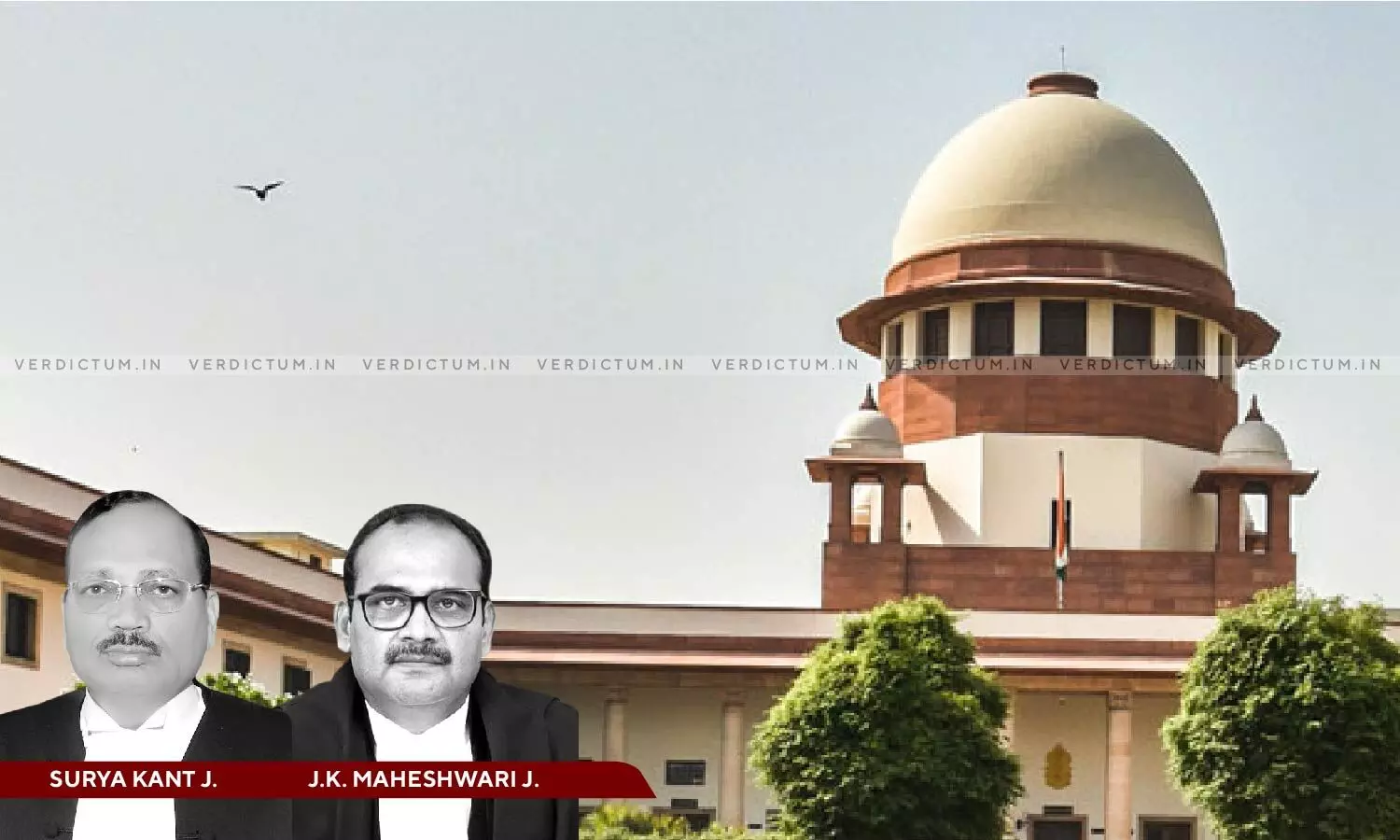
Only Fundamental Determinations Of Court Are Hit By Res Judicata; Not Incidental Or Non-Essential Observations- SC Reiterates
 |
|A Supreme Court Bench of Justice Surya Kant and Justice JK Maheshwari has observed that only fundamental determinations of the Court are hit by res judicata in subsequent proceedings. It was further held that if the Court makes any incidental, supplemental or nonessential observations which are not foundational to the final determination, the same would not tie down the hands of courts in future.
In that context, it was said that, "By now it’s a globally settled principle of common law jurisprudence that only determinations which are fundamental would result in the application of the doctrine of res judicata. Only those findings, without which the Court cannot adjudicate a dispute and also form the vital cog in the reasoning of a definite conclusion on an issue on merits, constitute res judicata between the same set of parties in subsequent proceedings. However, in the process of arriving at a final conclusion, if the Court makes any incidental, supplemental or nonessential observations which are not foundational to the final determination, the same would not tie down the hands of courts in future."
Senior Advocate Jaideep Gupta appeared for the appellants, while Senior Advocate Huzefa Ahmadi appeared for the respondents.
In this case, the appeals were directed against a judgment passed by the Division Bench of the High Court, whereby the intracourt appeal preferred by the State of Telangana and its revenue authorities was allowed. The core of the disputes was a resumption order, which confirmed the assignment of nonoccupied land in the 1960s to landless Scheduled Caste/Scheduled Tribe persons (appellants) for the purpose of cultivation.
The Appellants received a Show Cause Notice (SCN) from the Collector, but later the District Revenue Officer deemed it invalid. Subsequently, a second SCN was issued to the Appellants. They contended that the second SCN should be dismissed based on the principle of Res Judicata, as it pertained to the same subject matter as the first SCN.
The Apex Court found that the cause of action in the second SCN was different from the first SCN, since the High Court had held that the first SCN was issued without jurisdiction and set the same aside, instead of dealing with the resumption order on merits. Relying on the case of A. Jithendernath v. Jubilee Hills Coop. House Building Society, the Court held that the doctrine of res judicata would not be applicable as an order being a nullity never existed in the eyes of the law.
The Court also emphasized that any determination, despite being deliberate or formal, cannot give rise to application of the doctrine of res judicata if they are not fundamental in nature. In light of the same, the Court noted that, "On a plain reading of the High Court’s order dated 21.04.2006 in conjugation with the application of the test formulated above, we find that the observation in respect of GPA in the said order was indeed a mere collateral finding".
On the issue whether the second SCN would be barred by the extended doctrine of constructive res judicata, the Court observed that it was not applicable to the case at hand, since the issues raised in the Second SCN were never adjudicated upon.
The Court also made observations regarding the test to distinguish between a fundamental or collateral determination, which was hinged on the inquiry of whether the concerned determination was so vital to the decision that without which the decision itself cannot stand independently. In that context, it was said that, "Any determination, despite being deliberate or formal, cannot give rise to application of the doctrine of res judicata if they are not fundamental in nature."
Subsequently, the appeal was dismissed.
Cause Title: Yadaiah and Anr. vs State of Telangana and others
Click here to read/download the Judgment